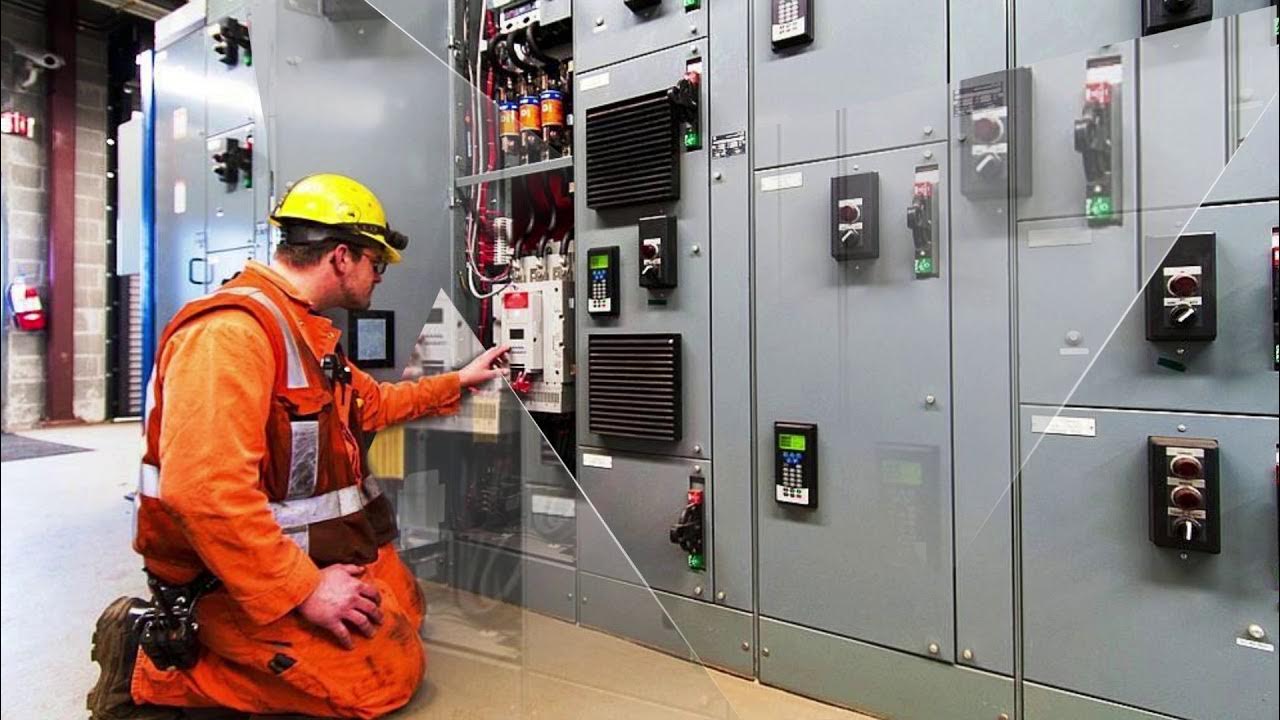Europe’s dynamic economies, ambitious infrastructure projects, and persistent labor shortages make it an attractive hub for foreigners seeking construction jobs in 2025. Countries like Germany, Luxembourg, and the UK are actively recruiting international workers, offering visa sponsorship to address critical skill gaps in roles ranging from unskilled laborers to skilled tradespeople. These positions provide competitive wages, hands-on experience, and a chance to engage with Europe’s rich cultural tapestry. While visa processes and job markets can be daunting, this guide equips job seekers from Nigeria, the Philippines, or any corner of the globe with the tools to succeed.
This comprehensive guide explores construction jobs with visa sponsorship in Europe for 2025, designed for diverse applicants. It includes practical steps, success stories, expert tips to empower you to seize these opportunities. we’ll help you turn your European construction career into reality. Read on to the end for a roadmap to success!
What Are Construction Jobs in Europe?
Construction jobs span unskilled roles like laborers to skilled trades such as carpenters and electricians, supporting Europe’s infrastructure, residential, and commercial projects. Key features include:
-
Duration: Temporary (3–12 months), seasonal, or permanent contracts.
-
Wages: €10–€15/hour for unskilled roles; €20–€40/hour for skilled trades; monthly earnings of €1,200–€4,500.
-
Visa Options: EU Blue Card, national work visas (e.g., Germany Work Visa), UK Skilled Worker Visa, or short-term permits.
-
Sectors: Infrastructure (roads, railways), residential housing, commercial buildings, industrial facilities.
In 2025, Europe’s construction sector faces a shortage of over 1 million workers annually, with platforms like Indeed listing 1,389 visa-sponsored jobs and LinkedIn highlighting demand in Germany, Luxembourg, and the Netherlands.
Why Pursue Construction Jobs in Europe in 2025?
Construction jobs with visa sponsorship offer foreigners compelling advantages:
-
Accessible Entry: Unskilled roles require minimal qualifications; skilled roles leverage certifications for higher pay.
-
Competitive Salaries: Unskilled workers earn €1,200–€2,000/month; skilled trades in Germany or Luxembourg can exceed €4,000/month.
-
Cultural Immersion: Work in historic cities like Berlin or scenic regions like Portugal’s countryside.
-
Skill Development: Gain globally recognized certifications (e.g., CSCS, BIM) and technical expertise.
-
Visa Pathways: Sponsorship via EU Blue Card or national visas can lead to permanent residency.
Challenges include language barriers, high living costs in urban centers, and competition for skilled roles, but strategic preparation mitigates these obstacles.
Eligibility Criteria for Construction Jobs
To qualify for construction jobs with visa sponsorship, candidates must meet:
-
Visa: Valid work visa, such as:
-
EU Blue Card: For skilled workers with qualifications and a job offer meeting salary thresholds (e.g., €43,992 in Germany, 2025).
-
National Work Visas: Country-specific (e.g., Luxembourg Long-Term Work Visa, UK Skilled Worker Visa) with employer sponsorship.
-
Short-Term Work Visa: For temporary projects, common in Portugal or Luxembourg.
-
-
Age: 18+; no upper limit for most visas.
-
Qualifications: Unskilled roles need no formal education; skilled roles require vocational training or certifications (e.g., NVQ, CSCS card).
-
Experience: Preferred for skilled roles (1–5 years); not required for laborers.
-
Language: Basic English often sufficient; French, German, or local languages increase employability by 30–45%.
-
Health and Safety: Knowledge of occupational safety or certifications preferred.
-
Character: Pass background checks for visa approval.
Note: Verify visa eligibility on official sites (e.g., make-it-in-germany.com, gov.uk); unskilled roles rarely require formal assessments.
Table 1: Top Construction Jobs with Visa Sponsorship in Europe 2025
|
Job |
Wage (€/hr) |
Countries |
Visa |
|---|---|---|---|
|
Labourer |
€10–€15 |
UK, PT |
SWV, STWV |
|
Carpenter |
€20–€30 |
LU, DE |
EBC, LTWV |
|
Electrician |
€22–€32 |
NL, UK |
EBC, SWV |
|
Mason |
€18–€28 |
LU, PT |
LTWV, STWV |
|
Site Manager |
€25–€40 |
DE, SE |
EBC, LTWV |
Notes:
-
Wages vary by experience/country.
-
PT: Portugal; LU: Luxembourg; DE: Germany; NL: Netherlands; SE: Sweden; UK: United Kingdom.
-
SWV: Skilled Worker Visa (UK); STWV: Short-Term Work Visa; LTWV: Long-Term Work Visa; EBC: EU Blue Card.
-
Focus on Germany/Luxembourg for sponsorship.

How to Secure Construction Jobs in Europe
Follow these steps to land a construction job with visa sponsorship:
Step 1: Research Job Opportunities
Explore platforms and countries with high demand:
-
Indeed: 1,389 visa-sponsored construction jobs (e.g., UK, Belgium).
-
LinkedIn: High demand for skilled roles in Germany, Netherlands.
-
Jooble: 232,000+ construction vacancies, many with sponsorship.
-
Relocate.me: Construction roles with visa support.
-
Recruitment Agencies: Skills Provision (UK), CARE2 Training Recruitment (Estonia-based) specialize in sponsorship.
-
X Posts: Check @atozserwisplus for Portugal jobs (€870/month, D1 Visa).
Tip: Use keywords like “visa sponsorship,” “construction,” or “unskilled” to filter listings.
Step 2: Verify Visa Eligibility
Determine the right visa:
-
EU Blue Card: For skilled workers; requires job offer and qualifications. Apply via employer sponsorship.
-
National Work Visas: E.g., Germany Work Visa (€635 fee) or UK Skilled Worker Visa (Certificate of Sponsorship).
-
Short-Term Work Visa: For temporary roles in Luxembourg or Portugal; employer-initiated.
-
Note: Non-EU citizens need sponsorship; EU citizens work freely.
Step 3: Prepare Application Materials
-
CV: European format (1–2 pages), highlighting construction experience, certifications (e.g., CSCS, safety), and adaptability. Use Europass templates.
-
Cover Letter: Emphasize relocation willingness, physical fitness, and visa sponsorship needs.
-
Documents: Passport, certifications, references, visa eligibility proof.
Tip: Highlight language skills or safety certifications to stand out.
Step 4: Apply and Interview
Apply via job portals, agency websites, or direct company applications (e.g., Skanska, Vinci). Expect interviews focusing on:
-
Technical skills and experience
-
Safety knowledge and adaptability
-
Language proficiency and teamwork
-
Agencies like Skills Provision assist with sponsorship.
Step 5: Secure Job and Visa
If offered a job with sponsorship:
-
Employer provides Certificate of Sponsorship (CoS) or visa nomination.
-
Apply for the visa (€500–€3,000, often employer-paid), submitting biometrics, health checks, and background clearance.
-
Processing takes 4–12 weeks.
Step 6: Relocate and Start Work
Employers may provide:
-
Accommodation support (e.g., Portugal construction sites)
-
Travel assistance
-
Safety training
-
Register with local tax and health systems within 14 days.
Table 2: Key Stats for Construction Jobs in Europe 2025
|
Metric |
Details |
Source |
|---|---|---|
|
Vacancies |
1M+ jobs; 1,389 sponsored |
Jooble, Indeed, 2025 |
|
Wage |
€10–€40/hr |
Naijarelocate, 2025 |
|
Countries |
DE (30%), UK (20%) |
Terratern, 2024 |
|
Visa Time |
4–12 wks |
Y-Axis, 2025 |
|
Shortage |
1M/yr needed |
Schengen.work, 2025 |
Notes:
-
DE: Germany; UK: United Kingdom.
-
Apply to Germany/UK for faster sponsorship.
 Maria powers Luxembourg’s growth with a sponsored visa.
Maria powers Luxembourg’s growth with a sponsored visa.
Success Stories: Construction Workers in Europe
Case Study 1: Labourer from Nigeria
Name: Emeka, 29, Unskilled Worker
Role: Construction Labourer, Portugal
Journey: Chidi secured a job via @atozserwisplus on X, earning €870/month on a D1 Visa. His employer provided accommodation and a 1-year residence permit. After 6 months, he earned safety certifications, boosting his prospects.
Insight: Unskilled roles offer accessible entry with visa extensions.
Case Study 2: Electrician from Philippines
Name: Maria, 34, Skilled Worker
Role: Electrician, Luxembourg
Journey: Maria landed a job via Indeed, sponsored by a Long-Term Work Visa. Earning €3,500/month, she used her NVQ certification and basic French. Her employer covered visa costs, and she’s now eligible for an EU Blue Card.
Insight: Skilled roles offer higher pay and residency pathways.
Challenges and Solutions
-
Challenge 1: Language Barriers
Basic English suffices, but French/German boosts prospects. Solution: Learn via Duolingo or local courses. -
Challenge 2: High Living Costs
Urban centers like Luxembourg are expensive. Solution: Seek roles with accommodation support. -
Challenge 3: Visa Complexity
Sponsorship requires employer backing. Solution: Use agencies like CARE2 Recruitment. -
Challenge 4: Competition
Skilled roles are competitive. Solution: Obtain certifications (e.g., CSCS, BIM). -
Challenge 5: Scams
Fraudulent postings exist. Solution: Verify employers on gov.uk or Luxembourg’s ADEM.
Top Employers and Agencies for Construction Jobs
Employers
-
Laing O’Rourke (UK): Sponsors skilled roles.
-
Skanska (UK, Sweden): Hires for infrastructure.
-
Balfour Beatty (UK): Offers laborer and manager roles.
-
Vinci (France, Luxembourg): Sponsors carpenters, masons.
-
Strabag (Germany): Seeks trades with EU Blue Card.
Agencies
-
Skills Provision (UK): Visa-sponsored roles.
-
CARE2 Training Recruitment (Estonia): UK, Europe jobs.
-
ADEM (Luxembourg): Public agency for sponsored roles.
-
Y-Axis: Visa process guidance.
Pro Tip: Verify employers on government registers (e.g., UK Home Office, ADEM).
Expert Tips for Success
-
Apply Early: Target spring/summer construction peaks.
-
Certifications: Get CSCS (UK), BIM, or safety certifications.
-
Network: Follow @atozserwisplus on X for leads.
-
Target Shortages: Focus on Germany (30% vacancies), UK, Luxembourg.
-
Learn Languages: French/German boosts employability by 30–45%.
-
Avoid Scams: Use Indeed, Jooble; avoid paying for applications.
-
Tailor CVs: Highlight stamina, safety, and relocation readiness.
Why Europe Needs Construction Workers
Europe’s construction sector thrives:
-
Shortages: 1 million workers needed annually.
-
Sponsorship: 1,389+ jobs offer visa support.
-
Wages: €10–€40/hour; skilled roles up to €4,500/month.
-
Countries: Germany (30%), UK, Luxembourg lead demand.
-
Diversity: Sponsorship fosters global talent integration.
Construction jobs in Europe are gateways to professional growth and cultural exploration. From building UK railways to Luxembourg’s urban projects, these roles blend economic impact with personal adventure. Chidi and Maria’s stories highlight how dedication and strategy unlock transformative careers. Europe’s labor needs create a win-win for workers and economies.
Pitfalls to Avoid
-
Wrong Visa: Check eligibility on official sites.
-
Generic CVs: Use Europass; highlight certifications.
-
Urban Focus: Target rural projects in Portugal, Germany.
-
No Certifications: CSCS or BIM are critical.
-
Scams: Use verified platforms; check employer registers.
Ready to work in Europe in 2025? Start now:
-
Research Jobs: Browse Indeed, Jooble, LinkedIn.
-
Check Visa: Apply for EU Blue Card or national visas.
-
Apply Now: Submit CVs to Skanska, Y-Axis.
Your construction career awaits. Begin today!
Frequently Asked Questions
-
What are construction jobs in Europe?
Roles from laborers to skilled trades (e.g., carpenters) in infrastructure, housing, commercial projects. -
Can foreigners apply?
Yes, with visas like EU Blue Card, UK Skilled Worker Visa. -
What visas allow construction work?
EU Blue Card, national work visas, short-term permits. -
How much do jobs pay?
€10–€15/hr (unskilled), €20–€40/hr (skilled); €1,200–€4,500/month. -
Which countries hire foreigners?
Germany, UK, Luxembourg, Portugal, Netherlands. -
Is language proficiency needed?
Basic English often enough; French/German helps. -
How to find visa-sponsored jobs?
Use Indeed, LinkedIn, or agencies like Skills Provision. -
Are there age limits?
18+; no upper limit for most visas. -
What are the best countries?
Germany (30% vacancies), UK, Luxembourg. -
How to avoid scams?
Use verified platforms; check employers on government registers.
Conclusion
Pursuing construction jobs in Europe with visa sponsorship in 2025 is more than a career move—it’s a transformative journey that blends professional growth, cultural immersion, and personal fulfillment. From laying foundations in Portugal’s rural sites to wiring cutting-edge buildings in Luxembourg, these roles offer a unique opportunity to contribute to Europe’s evolving landscape while building a brighter future for yourself. The stories of Chidi and Maria demonstrate that with determination, strategic preparation, and the right resources, workers from diverse backgrounds can thrive in this dynamic industry, whether starting as unskilled laborers or advancing as skilled tradespeople.
Europe’s construction sector, driven by a critical shortage of over 1 million workers, opens doors for international talent through visa sponsorship programs like the EU Blue Card and national work visas. These opportunities are not just about earning competitive wages—ranging from €1,200 to €4,500 monthly—but also about gaining globally recognized skills, such as CSCS or BIM certifications, that elevate your career prospects worldwide. Beyond the paycheck, working in Europe means living amidst historic cities, scenic countryside, and vibrant multicultural communities, from Berlin’s bustling streets to Sweden’s serene project sites. Each job is a chance to forge connections, learn new languages, and embrace a lifestyle that balances hard work with exploration.
The path to securing these jobs requires navigating visa processes, language barriers, and competitive markets, but the rewards far outweigh the challenges. By leveraging platforms like Indeed and Jooble, connecting with agencies like Skills Provision, and tailoring applications to highlight your strengths, you can position yourself as a valuable asset to European employers. The 2025 labor market, with its emphasis on infrastructure and urban development, is ripe for those willing to seize the moment. Whether you’re a novice laborer or an experienced electrician, your skills are needed to shape Europe’s future.
This guide has equipped you with the knowledge to act—research opportunities, verify visas, and apply with confidence. Avoid pitfalls like generic applications or unverified job offers, and embrace strategies like early applications and language learning to stand out. As you embark on this journey, celebrate every milestone, from securing a visa to completing your first project. Construction jobs in Europe are your gateway to stability, adventure, and growth. Take the first step today, and let 2025 be the year you build not just structures, but a legacy of achievement and discovery in one of the world’s most vibrant regions.
Ready to move forward? See our latest job in Europe listings here and start your application today!










